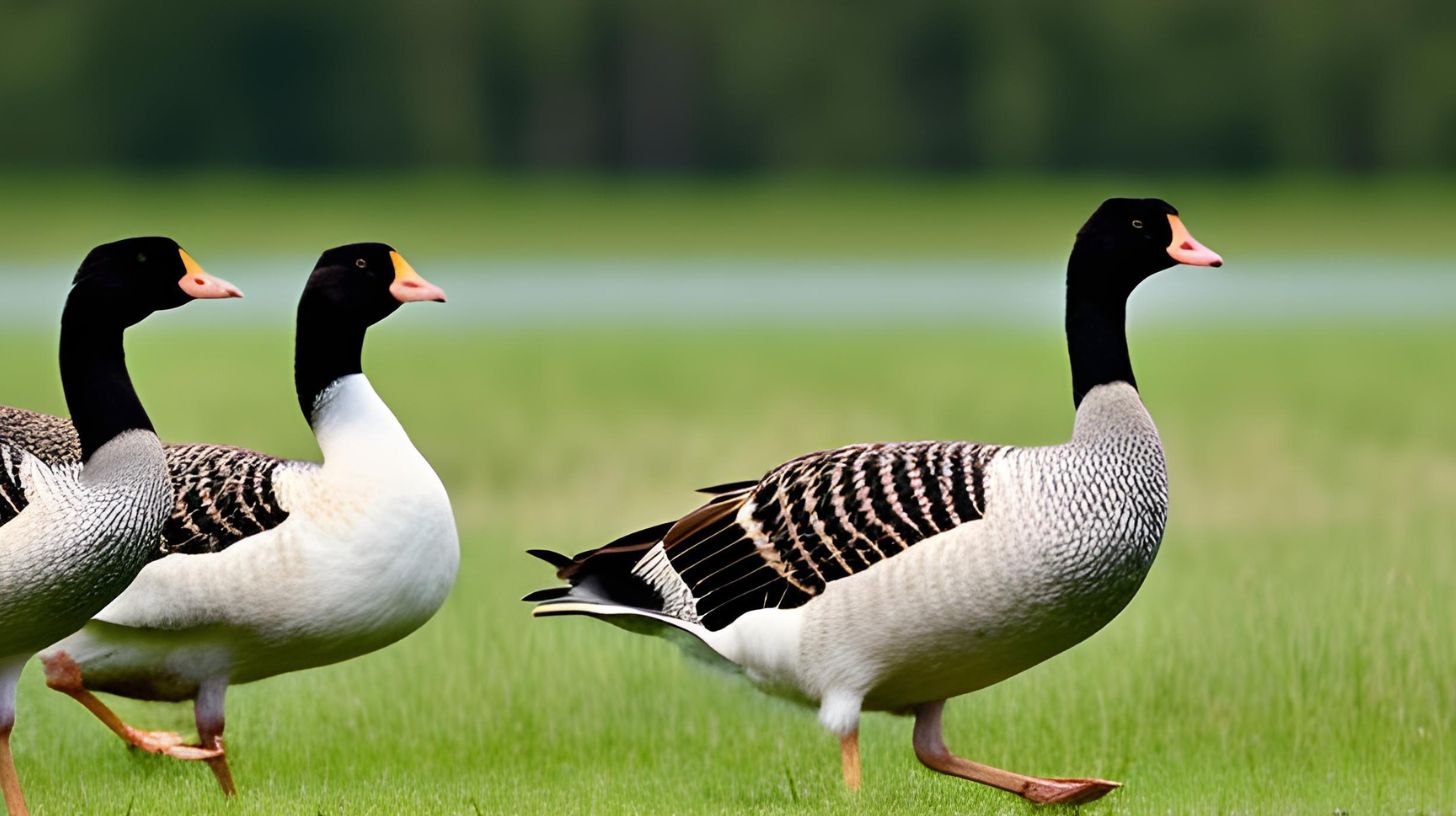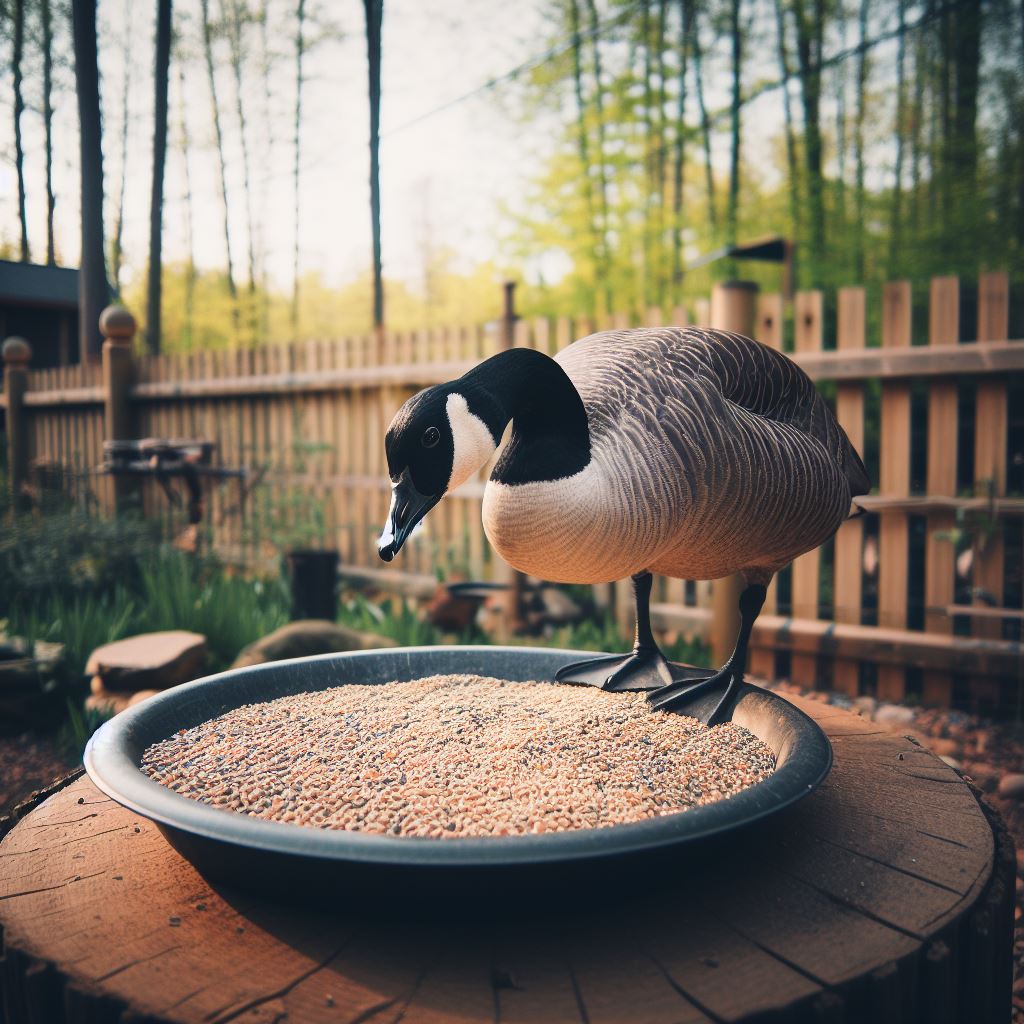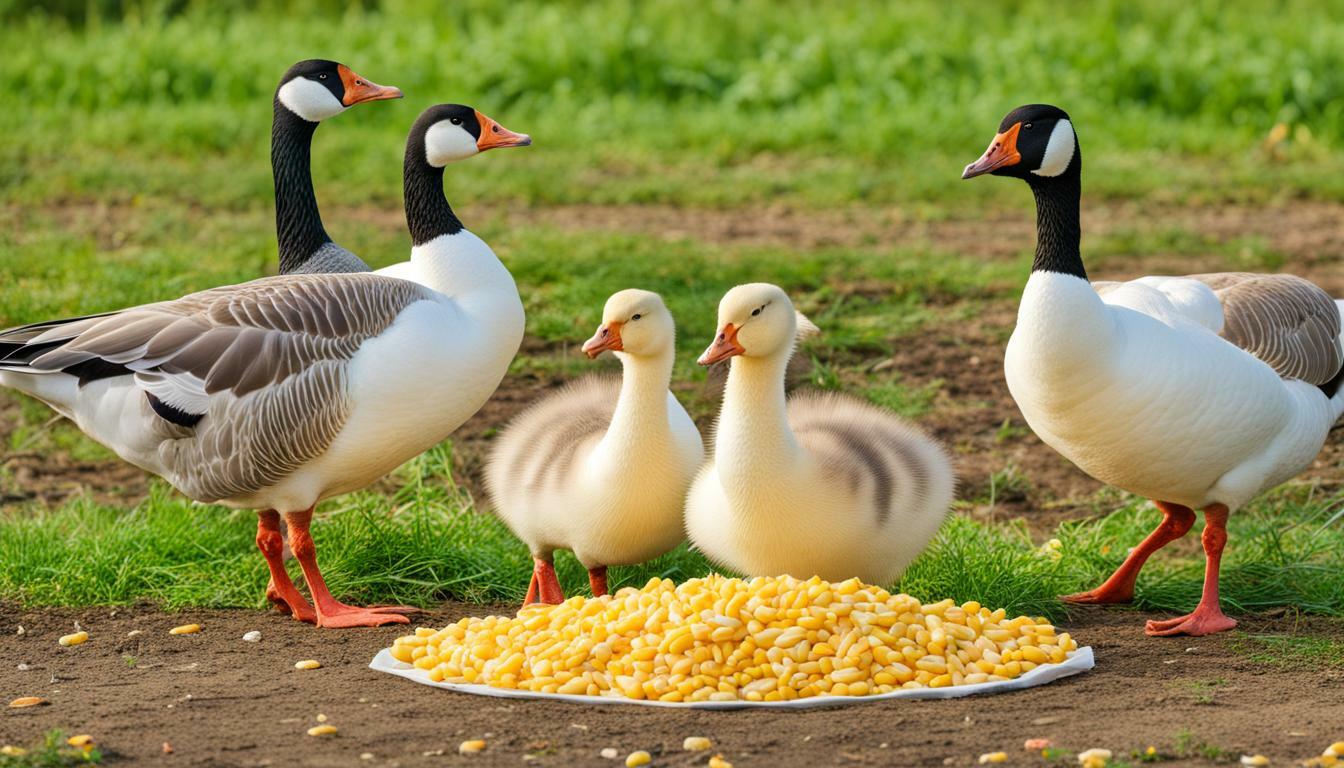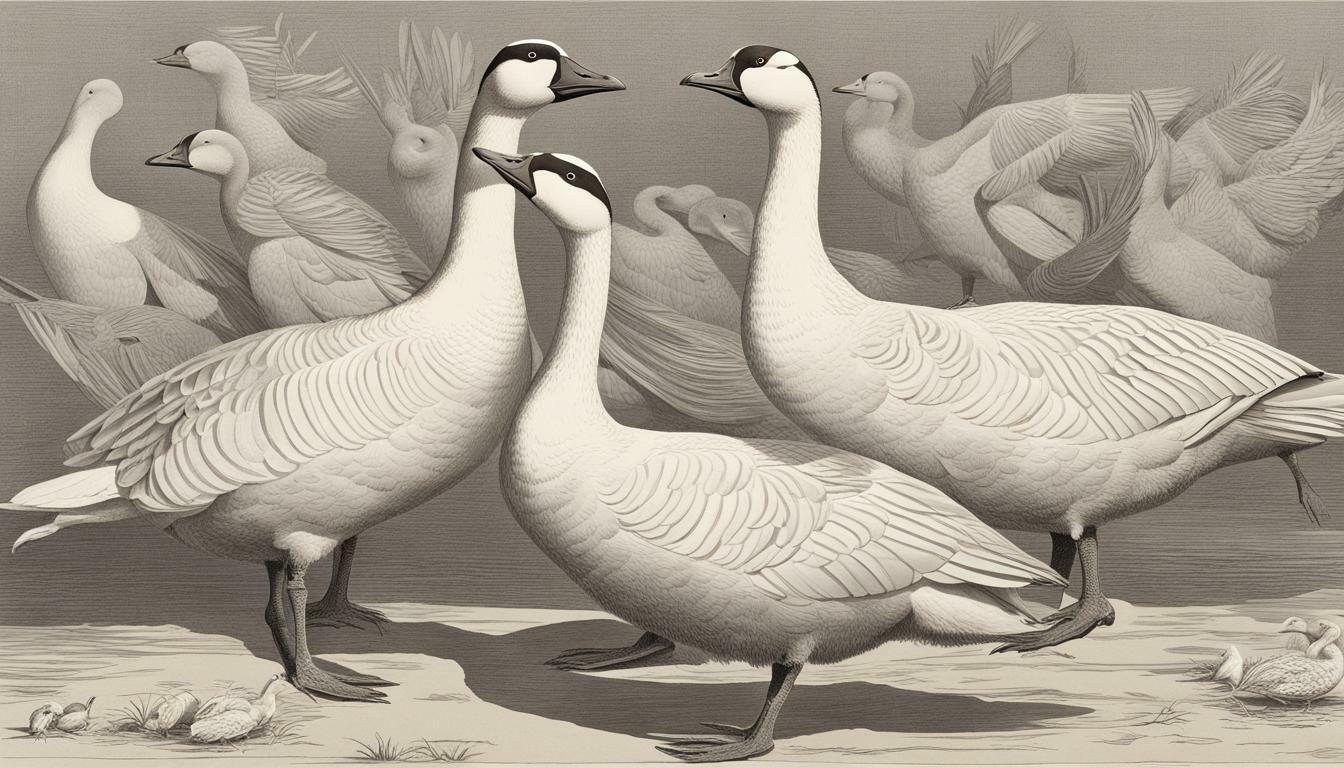Do Geese Eat Ticks? Geese Habits

Table of content:
Geese can be a great natural way to help control ticks on your property. But do geese actually eat ticks? Let’s explore the interesting relationship between geese and ticks.
Do Geese Eat Ticks?
Geese are voracious grazers and will eat all manner of insects, including ticks. When geese are grazing in an area, they are constantly pecking and nibbling at vegetation. This activity disturbs ticks resting on blades of grass waiting to latch onto a host. The geese inadvertently ingest ticks as they graze.
So while geese do not purposefully hunt down and eat ticks, they do ingest a fair number of ticks as they graze. Some key points about geese eating ticks:
- Geese eat ticks accidentally as they graze, not as a main food source.
- The ticks geese ingest most often are larval and nymph stage ticks, not adults.
- A single goose may eat hundreds of ticks per day while grazing.
- Geese don’t actually kill or eliminate ticks from an area, but help control tick populations.
Why Do Geese Eat Ticks?
Geese do not eat ticks for nourishment. Here are the main reasons why geese ingest ticks as they graze:
- Incidental ingestion – Geese do not seek out ticks as food. But as geese graze on vegetation, they inadvertently swallow ticks resting on grass and plants.
- Indiscriminate grazing – Geese are not picky eaters. They graze constantly on grasses, sedges, berries, seeds, leaves, and even insects. Ticks get swept up as geese nibble everything in sight.
- Gizzard as filter – A goose’s gizzard functions as a filter, straining out vegetation and particles from everything they ingest. This traps ticks and breaks them down.
So while geese don’t purposefully eat ticks, their grazing habits and indiscriminate eating make them a natural tick control.
What Kinds of Ticks Do Geese Eat?
Geese ingest primarily larval and nymph stage ticks as they graze, rather than adult ticks. This is because:
- Larvae and nymphs are smaller and less visible. They easily get swept up as geese nibble vegetation.
- Adults are larger, so geese are more likely to notice and avoid swallowing them.
- Larvae and nymphs hang out lower in vegetation. Adults quest higher up on tips of grasses and plants.
- Adults latch on tighter to hosts and are not as easily dislodged.
However, geese will ingest any ticks in their path as they graze. The most common species eaten include:
- Blacklegged tick – Ixodes scapularis. Also known as the deer tick. Primary vector for Lyme disease.
- American dog tick – Dermacentor variabilis. Can transmit Rocky Mountain spotted fever and tularemia.
- Lone star tick – Amblyomma americanum. Carries ehrlichiosis, Southern tick-associated rash illness (STARI), and tularemia.
So while adult tick ingestion is lower, geese do eat all tick species and life stages to some degree as they graze.
How Many Ticks Can a Goose Eat in a Day?
A single goose can eat a surprising number of ticks in one day. Estimates range from 100 to 300 ticks daily on average.
However, the actual number of ticks eaten depends on:
- Tick population – Areas with high tick density mean more ticks are inadvertently consumed.
- Time spent grazing – The more a goose grazes, the more ticks it will ingest.
- Season – Tick levels peak in early summer and taper off through fall.
- Weather – Cool, damp conditions allow ticks to quest more actively.
During peak tick season, a single goose may eat 200-400 ticks a day. But even in winter or low tick areas, they may still eat 50+ ticks in a day.
Considering a flock of 5-10 geese, a small gaggle can consume 500-1000+ ticks per day at peak tick season. This can significantly reduce ticks.
Do Geese Kill Ticks?
While geese ingest ticks, they do not actually kill them directly. However, geese can still reduce tick populations through:
- Incidental ingestion – Eating larvae and nymphs during critical life stages limits ticks’ ability to develop into biting adults.
- Breakdown in digestive system – A goose’s gizzard grinds up and breaks down ticks as they are swallowed.
- Lowered host density – The presence of geese can displace deer, small mammals and other tick hosts from an area.
So while geese do not directly kill or eliminate ticks, their grazing habits create an overall tick control effect:
- Fewer larval ticks mature into dangerous, biting nymphs and adults.
- Lower tick numbers mean less availability to attach to hosts and spread disease.
- Over time, disruptions in the tick life cycle and lowered populations become significant.
In summary, geese are an effective natural tick control, not through killing ticks directly, but by hindering their development and numbers significantly.
What Animals Eat Ticks?
In addition to geese, many other animal species inadvertently ingest ticks while grazing or grooming:
Birds
- Guinea fowl – Voracious insect eaters. Helped control tick-borne illness in one study.
- Chickens – Free-ranging chickens will ingest ticks and disturb their habitat.
- Turkeys – Wild turkeys will incidentally eat ticks while grazing.
- Ducks – Graze in similar fashion to geese. Effective tick controllers.
Mammals
- Deer – Groom ticks off themselves. But also the primary host in many areas.
- Cattle – Brush cattle against vegetation to dislodge ticks.
- Opossums – Grooming habits make them a big predator of ticks. Eat up to 5,000 per tick season.
Reptiles & Amphibians
- Turtles – Omnivorous species will eat ticks if the opportunity arises.
- Frogs & Toads – Insect-eating species will consume ticks.
- Lizards – Some small insectivorous lizards will eat ticks.
So geese are not the only animals that help control ticks. Explore options to encourage wildlife diversity.
Do Geese Get Ticks?
Yes, geese are frequent hosts of ticks. Geese encounter ticks as they graze in brush and long grasses. Ticks will latch on and feed on geese when given the opportunity.
Some key points about geese hosting ticks:
- Common tick species – Lone star, black-legged, and American dog ticks frequently infest geese.
- Preferred attachment sites – Ticks often attach around a goose’s vent, breast, eyes, and neck.
- Can transmit illness – Ticks can spread diseases to geese such as Lyme disease and anaplasmosis.
- Heavy infestations were possible – Geese don’t groom often and can harbor hundreds of ticks.
- All life stages – Geese host larval, nymph, and adult stage ticks.
So while geese ingest many ticks, they also are prone to high tick loads themselves. Monitor geese health closely.
Natural Tick Control for Geese
If your geese have a heavy tick infestation, consider these natural options to rid them of ticks:
- Food grade diatomaceous earth – This powder dehydrates ticks on contact. Dust geese and nesting areas. Avoid eyes.
- Neem oil – Made from the neem tree. Apply diluted spray to geese avoiding eyes, nostrils, and mouth.
- Garlic powder – Contains insecticidal compounds. Place small amounts in goose feed. Monitor for toxicity.
- Apple cider vinegar – The odor repels ticks. Wipe a diluted solution on geese avoiding eyes.
- Vegetable oil – Coating feathers with oil suffocates ticks. Avoid eyes, and nostrils.
- Manual removal – Check geese daily. Remove attached ticks promptly with tweezers.
For heavy goose tick infestations, consult a vet for medicated shampoos, sprays, or ivermectin treatment if appropriate. Maintain healthy habitat and discourage deer to control tick levels long term.
Can Geese Give You Lyme Disease?
Geese do not directly transmit Lyme disease to humans. However, geese living in Lyme endemic areas frequently harbor infected ticks. This means geese can indirectly expose you to Lyme disease through tick bites.
Key points about geese and Lyme disease:
- Lyme bacteria does not spread directly from geese to people. An infected tick bite is required.
- Ingested ticks with Lyme do not transmit through goose droppings or meat. Lyme cannot survive the goose’s digestive system.
- Geese that host many ticks have an increased chance of carrying infected ones.
- Take precautions handling geese in Lyme disease prone regions to avoid tick bites.
So while geese do not directly spread Lyme disease, you can still contract Lyme from an infected tick bite from geese harboring high numbers of ticks. Minimize contact with goose ticks through healthy habitat, prompt tick removal, and protective clothing.
In summary, here are the key points to understand about the relationship between geese and ticks:
- Geese do eat ticks, primarily larvae, and nymphs, as they graze – up to hundreds per day.
- While geese don’t kill ticks directly, ingestion hinders tick development and lowers populations.
- Other birds, mammals, and wildlife also provide tick control through ingestion and grooming.
- Geese frequently harbor ticks themselves and can get heavy infestations.
- Take precautions handling geese in Lyme disease regions to prevent infected tick bites.
- With some management, geese can be an effective, natural tick control on your property.
Final Thoughts
Geese offer a chemical-free method to help manage ticks through their grazing and habitat disturbance. While geese alone will not eliminate ticks entirely, they can significantly reduce numbers and disease risk. When geese are combined with other techniques like discouraging deer and encouraging natural diversity, they can be a major asset in your tick control plan.
Welcome. I’m Adreena Shanum, the proud owner of this website, and I am incredibly passionate about animals, especially poultry. I founded adreenapets.com as a labor of love, stemming from my desire to share my knowledge and experiences with poultry enthusiasts worldwide.




